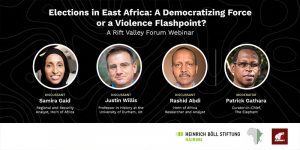Over the past year, countries across the East Africa region have held elections to elect leaders at various levels. These polls have been accompanied by complaints over irregularities, violence and a general lack of credibility. In Uganda and Tanzania, disputed polls and allegations of rigging by incumbents were followed by brutal crackdowns on democratic freedoms. In Ethiopia, despite the AU’s election observer mission declaring the twice-postponed election “orderly, peaceful and credible”, a fifth of the country failed to take part in voting owing to an opposition boycott, war and insecurity, and logistical problems. Somalia’s failure to hold long- delayed indirect elections has endangered its fragile peace. While in Somaliland-despite urban low voter turnout and ballot tampering in the rural areas, the long delayed parliamentary and local council elections were smoothly run leading to a surprise loss to the ruling party and a peaceful transfer of power. Still, harassment of opposition candidates during campaigns – and women exclusion remain a feature of the electoral process. All this begs the question; Are elections in East Africa a democratising force or a flashpoint for violence?

Rethinking Ethiopia II: Youth and politics
Seminar report Rethinking Ethiopia, a collaborative essay competition initiative between Addis Ababa University’s Institute for Peace and Security Studies (IPSS) and the Rift Valley Institute’s



